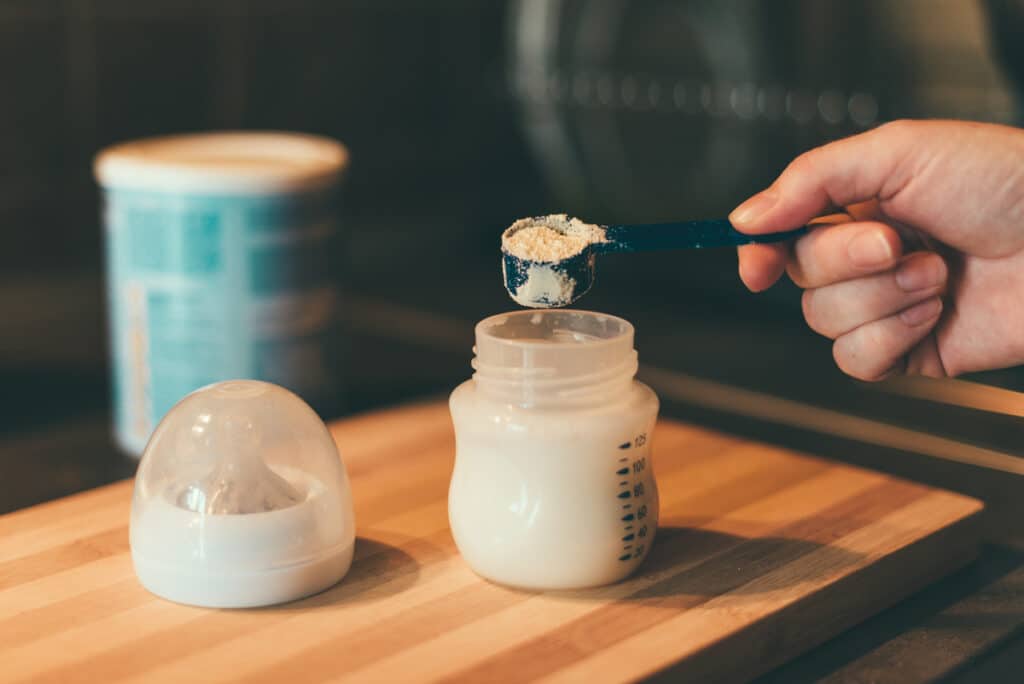Protein is an essential macronutrient that is crucial for building, maintaining, and repairing tissues in the body. It is found in various food sources such as meat, fish, eggs, dairy products, legumes, nuts, and seeds. However, with the rise of health and fitness culture, protein powder supplements have become increasingly popular among individuals who are looking to boost their protein intake. But is it safe to consume protein powder? In this blog, we will explore the safety and potential risks associated with protein powder consumption. So, scroll down to find out more!
In This Article
What is protein powder?
Protein powder is a dietary supplement that is commonly used by athletes, bodybuilders, and fitness enthusiasts to increase their protein intake. Protein supplements help muscle mass, improve athletic performance, and enhance exercise recovery. However, most protein powders are derived from milk, soy, or eggs and are available in various forms that can be mixed with water, milk, or other liquids to make a protein shake.

What are the different types of protein powders?
The protein supplementation market offers a wide range of options, with the most commonly used protein powders being whey, casein, soy, egg white, Hemp, and pea protein.
- Whey Protein: It is one of the two proteins found in cow’s milk (the other being casein) and has high levels of essential amino acids that are easily absorbed by the body. Whey protein supplement have been shown to increase muscle mass and decrease body fat. Whey protein isolate and whey protein concentrate are the two main forms of whey protein powder.
- Casein Protein: It is the other protein found in cow’s milk and is considered a slow-digesting protein as it takes longer to digest compared to whey protein. Casein protein supplementation has been shown to improve muscle growth and strength, but more research is needed regarding its potential benefits.
- Soy Protein: It is derived from soybeans and contains all essential amino acids. Soy protein supplementation has been shown to improve muscle mass, as well as reduce cholesterol levels in individuals with high blood pressure.
- Pea Protein: It is derived from yellow split peas and is a popular protein powder among vegetarians and vegans. Pea protein supplementation has been shown to be just as effective as whey protein in increasing muscle thickness and strength.
- Egg White Protein: Egg white protein supplementation has been shown to increase muscle mass and body weight in resistance-trained individuals. Dietary supplements that are made from egg whites provide a complete amino acid profile.
- Hemp Protein: It is derived from hemp seeds and contains all nine essential amino acids. Hemp protein supplementation has been shown to improve muscle mass and strength in individuals following resistance training programs.
Is it safe to consume protein powder?
Consuming protein powder is generally safe for most healthy individuals. As per the recommended dietary allowance (RDA), healthy individuals can consume up to 1.5 grams of protein per pound of body weight daily from food and protein supplements.
Furthermore, individuals with certain medical conditions or allergies should be cautious while consuming protein powders. For instance, muscle protein synthesis, the process by which muscle fibers are repaired and built, is maximized when protein intake is spread out throughout the day. However, it is always recommended to consult a healthcare professional before incorporating any supplements into your diet.

What are the benefits of using protein powders?
Protein powders have various benefits, including:
- Increase muscle mass and strength: Protein powders are a convenient way to increase protein intake and support muscle gain. However, lean body mass can also be achieved through a balanced diet and regular physical activity.
- Improve exercise performance: Research suggests that protein powders, specifically whey protein supplementation, may improve muscle endurance during high-intensity exercises.
- Promote weight loss: Protein is known to increase satiety, which can aid in reducing overall calorie intake and promoting weight loss.
- Preserved muscle mass: As we age, our muscle mass naturally decreases. Protein powders can help prevent muscle loss and preserve overall strength in older adults.
- Increased glutathione: Glutathione, a powerful antioxidant, can protect cells from damage and improve immune function. Some studies suggest that whey protein hydrolysate may increase glutathione levels in the body.
- Alkalizing qualities: Protein powders derived from plant-based sources can have alkalizing effects on the body, which may help balance out the acidic nature of the typical Western diet.
Are there any risks associated with protein powders?
Protein powder is generally considered safe when consumed in moderation, but like any supplement, there are potential risks associated with its use. Some of the common risks include:
- Allergic reactions: People with allergies to milk, soy, or eggs should avoid protein powders derived from these sources.
- Digestive issues: Excessive consumption of protein powder may result in digestive issues such as bloating, gas, and cramping.
- Kidney damage: High protein intake has been linked to kidney damage in individuals with pre-existing kidney conditions. For individuals with kidney disease, enough protein intake is crucial. Consult a healthcare professional for guidance.
- Heavy metal contamination: Some protein powders have been found to contain heavy metals such as lead, arsenic, and cadmium. It is important to choose reputable brands that regularly test their products for contamination.
- Interactions with medications: Protein powders may interact with certain medications, so it is important to consult a healthcare professional before consuming them.
- Lactose intolerance: Powders derived from milk may still contain lactose, which can cause issues for individuals with lactose intolerance.
- Unnecessary calorie intake: Some protein powders may contain added sugars or artificial sweeteners, which can add unnecessary calories to your diet.

How much protein powder is too much?
Most bodies can process excess protein from food and supplements and safely tolerate 1.14–1.5 grams per pound (2.5–3.3 grams per kg) of protein daily. According to this, 1-2 per serving should be enough in most cases, depending on body weight and level of physical activity. Protein powder healthy levels vary depending on your lifestyle and exercise goals.
For example, endurance athletes may need a slightly higher protein intake to maintain muscle mass whereas bodybuilders may require more protein to support muscle growth. Hence, it is essential to monitor your protein intake and adjust accordingly based on your individual needs.
Tips to choose the safe protein powder
When choosing a protein powder, consider the following tips:
- Always check the ingredients list for potential allergens.
- Choose a reputable brand that regularly tests their products for contamination.
- Look for third-party certifications, which indicate that the product has been tested and verified by an independent organization.
- Avoid protein powders with added sugars or artificial sweeteners.
- Consult a healthcare professional before consuming protein powders if you are taking any medications or have pre-existing kidney conditions.
- Aim for a balanced diet and limit excessive consumption of protein powders to reduce potential risks.
- Choose a protein powder with a complete amino acid profile, including essential and non-essential amino acids.
- Consider the type of protein source used in the powder, such as whey, casein, soy, or plant-based proteins like pea or hemp.
- Lastly, consider the taste and texture of the protein powder as it can greatly affect your enjoyment and consistency in consuming it.
Conclusion
To sum it up, protein powders can be a convenient way to increase protein intake and support various health benefits. However, it is important to choose safe and reputable brands, consult a healthcare professional for guidance, and avoid excessive consumption. With the right protein powder, you can support your fitness goals and overall well-being. So, make an informed decision and choose the protein powder that best fits your needs and preferences!











